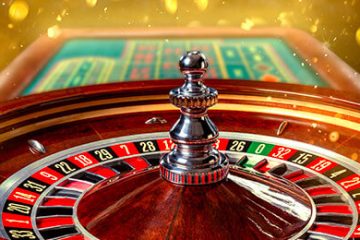Each and every gambler is aware of the underlying truth behind this massively misunderstood statement that seems to allude that the house never loses. The truth of the matter is that understanding the statement from a rational perspective is key to demystifying the myth of the ages. What this implies in this particular case is that the house, or the casino, will always make a profit regardless of losing some hands to individual gamblers – so yes, the house eventually emerges the winner. Casinos, just like any other business, are based on the need to make a profit and they do so by creating a margin referred to as the house edge. This brings us to the next issue at hand.
How Does the House Always Win?
Gambling as an activity is designed with the aim of preserving the house edge we mentioned earlier such that over the hundreds of thousands of bets that are made, the casino ultimately emerges at the top. Gamblers, from time to time, win up to millions in individual bets but looking at this objectively it is quite clear that the percentage of winnings that the casino businesses pay out to their customers is meager compared to their profits. This argument is rather facetious being that the house edge is not necessarily overpowering – which is not disputable. However, this may only apply to in the short term for some games rather than long term gambling routines that see a build-up of the house edge on every bet thus guaranteeing a loss in the long run.
Why Do People Keep Gambling Then?
The answer here is very straightforward – they have mastered the art of special design psychology that is used to get customers to gamble more and often. Casinos have addiction and greed among gamblers down to a science. It is not a bad thing though –just business. In fact, it readily conforms to the usual norm of any business you can think of due to the concepts of supply and demand that revolve around them. Casinos employ a number of skilled people who study the target markets as well as the science of human desires to learn how best they can market their product to the potential customers. The goal of gambling, in the context of a casino business, is to get the customers to play longer, more intensively, faster and, ideally, to the very end.

Every aspect of the games, right from the actual machines, the sound effects, and the dealers contribute to a well laid out framework that determines the timing as well as the frequency of payoffs. Maximizing the amount of time that gamblers spend indulging in their favorite games is the idea behind all this – and it works. Gamblers tend to misjudge the variances and uncertainty of payoffs as a result of taking risks, simply because their egos and senses of success are inflated by small wins. Most of them overlook the long-term losses that are associated with risk taking as the small wins influence a delusion that winnings, more specifically a grand one, will eventually make up for all the losses. The same conclusion is still valid here: the house always wins. It is basically a statistical guarantee voided only by the few lucky players who are willing to get out with the winnings they have got before it is too late. Keep playing and the house has you back on its leash. Since gamblers are usually driven by emotional jolts, there is no statistical argument that could convince them otherwise.
Casinos exist to make money and if all the players stopped playing the minute they won at any game, the casino would have to shut down. Most do not stop owing to overwhelming egos and greed and continue to play. Please stay this way for the sake of the casino industry.
The House Edge and Common Misconceptions
The house edge, which is the difference between the true odds and the odds paid to gamblers when they win, is how casinos make their profit. It is more or less the built in profit underlying every single bet thus implying that playing lower edge games will put a little more money in your pocket.
As far as the house edge is concerned, the results of short term gambling vary significantly from those of long term gambling. As such, it is important to acknowledge the fact that all the probability figures involved in gambling are merely estimates that are expected to hold true only for a large number of repetitions. Looking at the short term, anything can happen. A typical illustration is winning 6 bets in a row, which is not very likely but also not impossible. Someone who does not understand the concept of the house edge might get lucky and have no clue about the profit the casino is bound to make in the long run. A certain percentage of gamblers will go home winners but in reality, they are likely to be ignoring their losses through selective memories or a confirmation bias.

Casinos, of course, are aware that some players are going to win in the short run. This is the model with which the longevity and the success of the business are based on – no one would come back to gamble if there is no proof that you can win. For every one gambler that is enjoying an exceptional winning session, there is another who is losing miserably. The edge always kicks in as more players join the casinos over varying periods of time. Despite this, the casinos are usually financially equipped enough to wait for this edge.
Improving Your Chances in Gambling
First, you must learn how to manage your bankroll wisely. While it is usually very fun when you are on a winning spree, it is worth noting that losing is possible and inevitable so you had better create a providence for losing. Gamblers will always emerge victorious so long as they have better ways and rational strategies of managing their bankroll.
Secondly, it is advisable to always quit playing while you are still ahead – it is a very effective work around. The mistake most gamblers make is not knowing when exactly to quit and it usually ends up costing them dearly. It improves your chances significantly in the sense that you always get to walk away with the profit however small it might be. Winning big is an exciting idea, we get it, and most often than not it influences the greed associated with gambling. Casinos have a bigger bankroll which cushions it against your wins and steers it steadily towards emerging the winner eventually. So, it is important to set limits and know exactly when to quit once those limits are reached.



0 Comments